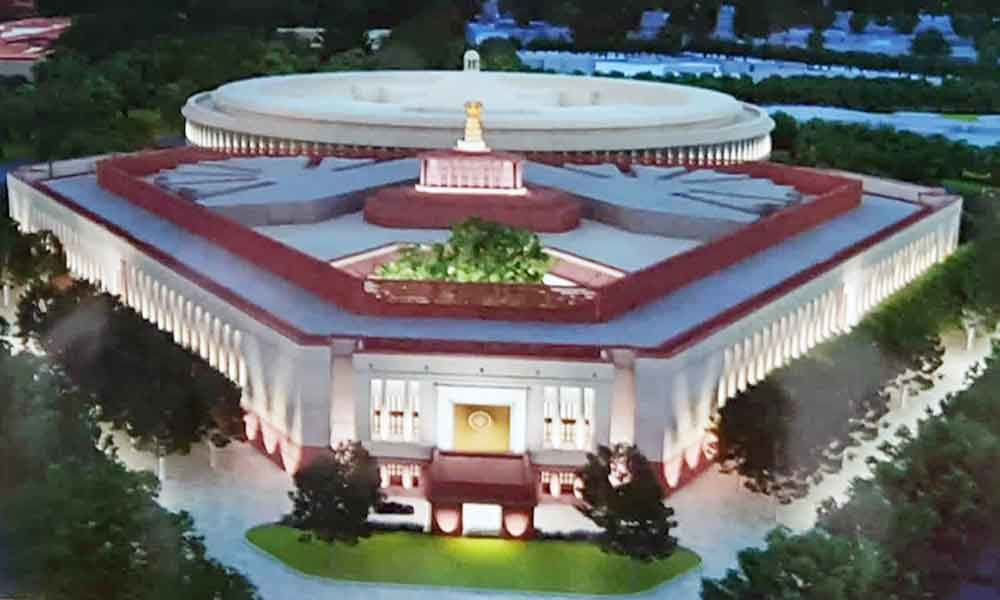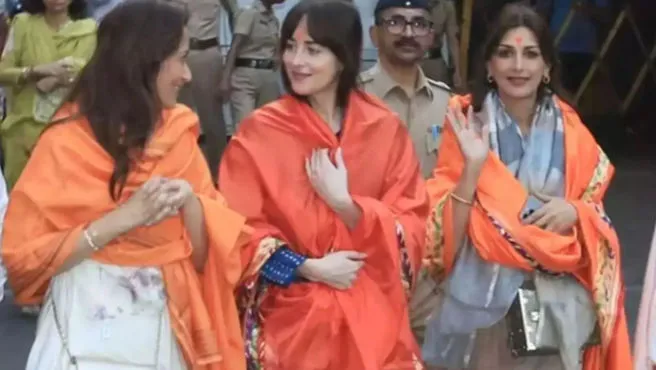In a display of unity, 19 opposition parties, including the Congress, Left, and TMC, have declared their decision to boycott the inauguration of the new Parliament building by Prime Minister Narendra Modi. The parties expressed their belief that there is no value in a new building when the essence of democracy has been eroded. They criticised the autocratic manner in which the new Parliament was constructed and accused the government of undermining democratic principles.
The opposition parties released a joint statement acknowledging the significance of the Parliament building’s inauguration but expressing their disapproval of the prime minister’s decision to inaugurate it himself, sidelining President Droupadi Murmu. They argued that the president, being an integral part of Parliament, should have been involved in the inauguration. By excluding her, they contended that the prime minister insulted the office of the president and violated the spirit of the Constitution.
The Congress, Trinamool Congress, DMK, Janata Dal (United), AAP, CPI-M, CPI, SP, NCP, SS (UBT), RJD, IUML, JMM, NC, KC (M), RSP, VCK, MDMK, and RLD are among the parties that signed the joint statement. This boycott decision follows a long-standing demand from the opposition for the president to inaugurate the new Parliament building instead of the prime minister.
The opposition parties criticised the prime minister for his undemocratic actions, alleging that he has systematically weakened the Parliament. They highlighted instances of opposition members being disqualified, suspended, and silenced when raising issues on behalf of the people. They also accused members from the ruling party of disrupting Parliament and passing controversial legislation without proper debate. According to the parties, these actions have effectively rendered parliamentary committees ineffective.
The Congress strongly condemned the prime minister’s decision, calling it a direct attack on democracy. They emphasised that President Droupadi Murmu’s exclusion from the inauguration was not only an insult to her but also a threat to democracy itself. The Congress announced their collective decision to boycott the event, stating that when the essence of democracy has been diminished, a new building holds no value.
The opposition parties invoked Article 79 of the Constitution, which establishes Parliament as consisting of the president and two houses, emphasising that the president’s role is indispensable. They criticised the government for the construction of the new Parliament building during the pandemic without consulting the people or the MPs for whom it was supposedly being built.
The controversy surrounding the inauguration ceremony has led to a war of words between the government and the opposition. While the government extended invitations to all political parties, the opposition insisted that the president should inaugurate the new building. Home Minister Amit Shah called for the event to be separate from politics and encouraged the opposition to reconsider their decision.
Despite the boycott, the grand opening of the new Parliament building will proceed as planned, with Prime Minister Modi scheduled to inaugurate it on May 28. The ceremony will include hymns, a havan (a ritual involving sacred fire), and a puja (a religious ceremony). In addition to the prime minister, Lok Sabha Speaker Om Birla will be present at the event.
Although some opposition parties, such as the Shiromani Akali Dal, have announced their intention to attend the inauguration, the majority of the signatories to the joint statement will not be present. The BSP, TDP, BJD, AIADMK, and YSRCP have not yet disclosed their stance on the matter. AIMIM chief Asaduddin Owaisi stated that his party would only attend if Lok Sabha Speaker Om Birla inaugurated the new Parliament building.
Moving forward, the opposition parties are likely to intensify their efforts to hold the government accountable and raise public awareness about issues they believe are detrimental to democracy. They may employ various strategies such as organising protests, conducting public campaigns, and utilising parliamentary procedures to challenge the government’s policies and actions.
The opposition’s decision to boycott the inauguration of the new Parliament building is a significant gesture that underscores their determination to resist what they view as an autocratic style of governance. By abstaining from the event, they aim to send a strong message to the government and the public about their commitment to defending democratic principles and ensuring transparency, inclusivity, and the voice of the people in the decision-making process.
Furthermore, this boycott could lead to a further polarisation of the political landscape in India. The divide between the ruling party and the opposition may deepen, resulting in heightened tensions and a more confrontational political environment. The government may face increased scrutiny and criticism from the opposition, both inside and outside of Parliament.
However, it is important to note that political dynamics can evolve rapidly, and there is always the possibility of dialogue and negotiation between the government and the opposition in the future. As the situation unfolds, the response of the government, public sentiment, and the actions taken by both sides will shape the trajectory of political developments in India.
It is also worth mentioning that the response of the general public to the opposition’s boycott and their stance on the issues raised will play a crucial role in shaping the overall narrative. Public support or criticism can influence the government’s policies and actions, as well as the strategies adopted by the opposition.
In conclusion, the decision of the opposition parties to boycott the inauguration of the new Parliament building reflects their discontent with the government’s perceived erosion of democratic principles. It signifies their commitment to safeguarding democratic values and holding the government accountable. The boycott is likely to contribute to a more contentious political atmosphere and may have implications for the future course of Indian politics.






















